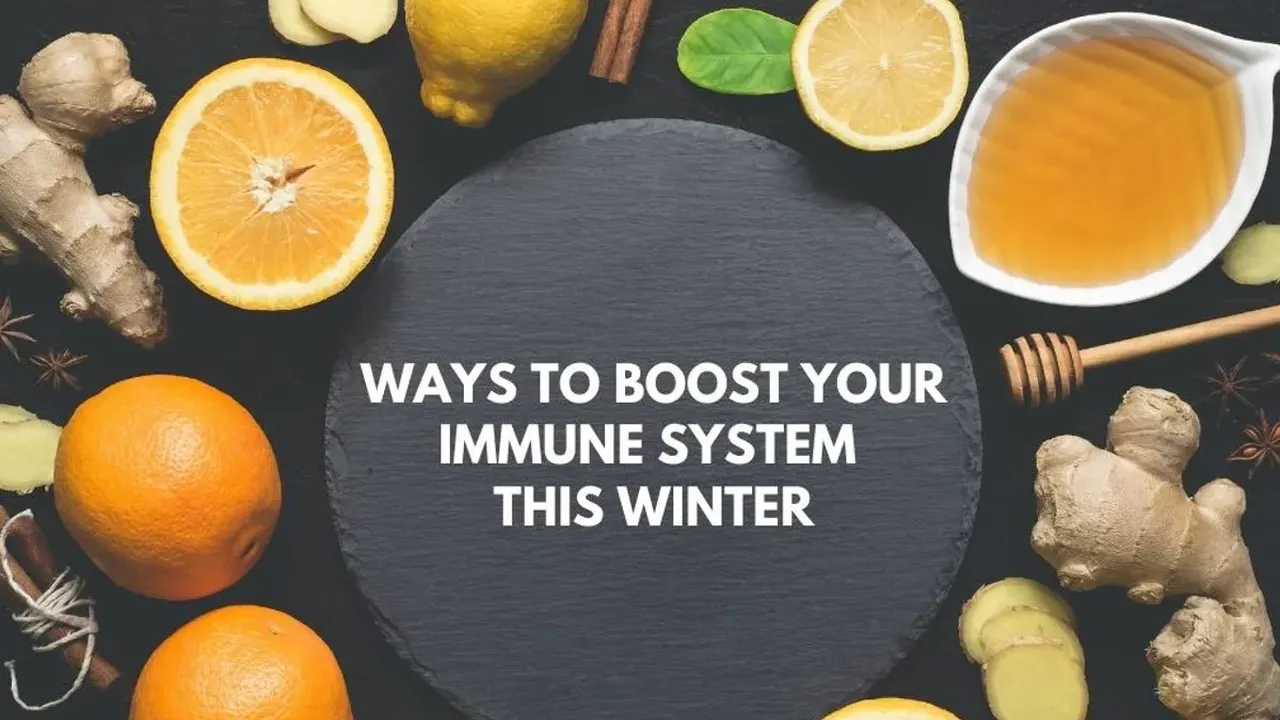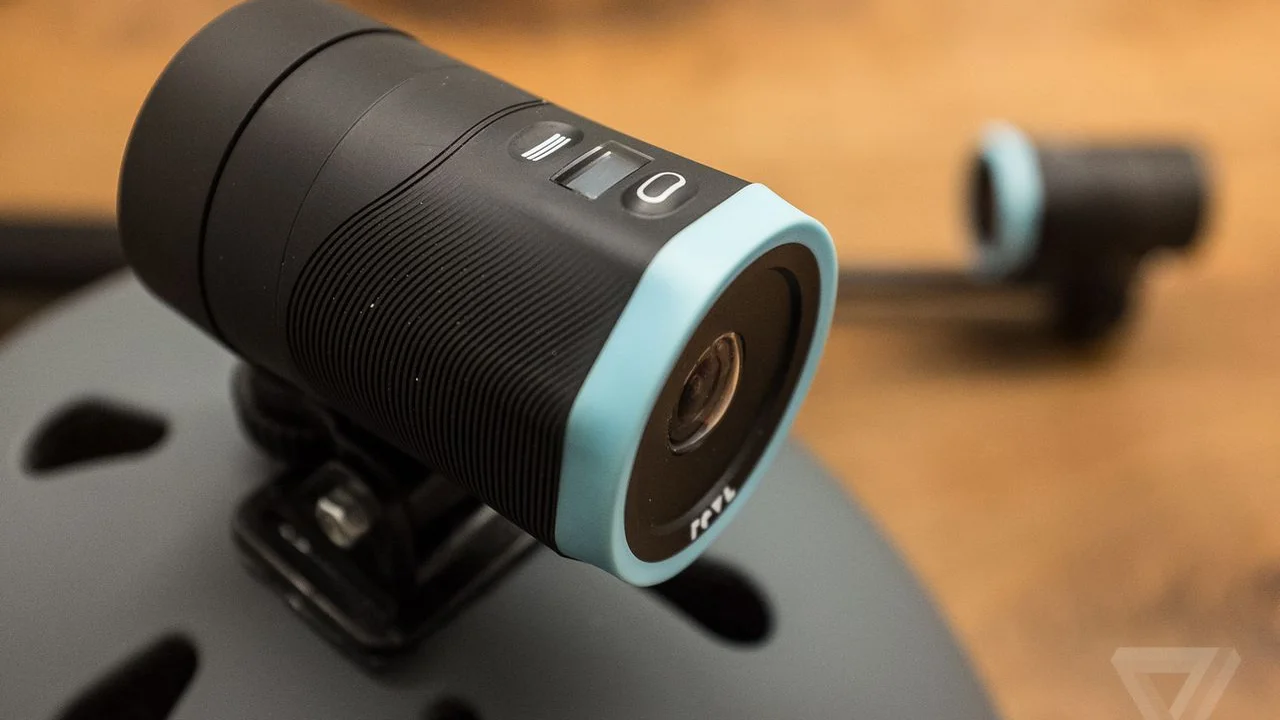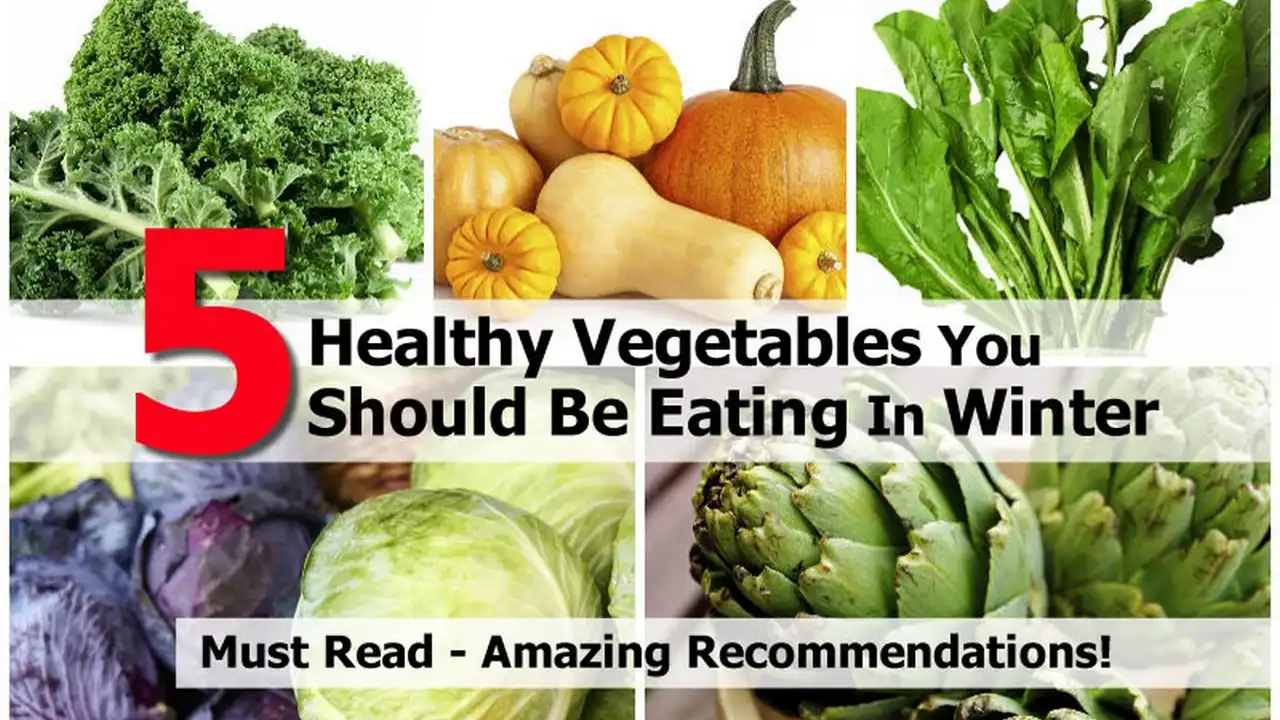
Immune System Boosters Winter
Winter is a magical time for many, bringing with it cozy nights, festive holidays, and exhilarating winter sports. However, it also often brings a less welcome guest: the common cold, flu, and other seasonal illnesses. As the temperatures drop and we spend more time indoors, viruses tend to spread more easily. But don't despair! You can proactively boost your immune system to stay healthy and enjoy all that winter has to offer. This isn't about magic pills; it's about a holistic approach combining smart nutrition, targeted supplements, and healthy lifestyle choices. Let's dive into how you can fortify your body's natural defenses.
Nutritional Powerhouses for Winter Wellness
Your diet plays a crucial role in immune function. Think of food as fuel for your body's defense system. During winter, focus on nutrient-dense foods that provide essential vitamins, minerals, and antioxidants.
Vitamin C Rich Foods for Cold Season Immunity
Vitamin C is perhaps the most well-known immune booster. It's a powerful antioxidant that helps protect cells from damage and supports various cellular functions of the immune system. While oranges are famous, many other foods pack a bigger punch.
- Bell Peppers: Red, yellow, and orange bell peppers are surprisingly high in Vitamin C, often containing more than an orange. They're versatile and can be added to stir-fries, salads, or eaten raw.
- Broccoli: This cruciferous vegetable is not only rich in Vitamin C but also contains other antioxidants and fiber. Steam it lightly to retain its nutrients.
- Kiwi: Small but mighty, kiwis are packed with Vitamin C and other beneficial compounds. Enjoy them as a snack or in fruit salads.
- Strawberries: Even in winter, frozen strawberries are a great source of Vitamin C for smoothies.
- Citrus Fruits: Oranges, grapefruits, lemons, and limes are classic sources. Start your day with a glass of fresh orange juice or add lemon to your water.
Zinc Sources for Immune System Support
Zinc is a vital mineral for immune cell development and function. A deficiency can impair immune response, making you more susceptible to infections.
- Oysters: These are by far the richest source of zinc.
- Red Meat: Beef, lamb, and pork are excellent sources. Choose lean cuts.
- Legumes: Lentils, chickpeas, and beans are good plant-based sources of zinc.
- Nuts and Seeds: Pumpkin seeds, cashews, and almonds provide a decent amount of zinc.
- Dairy Products: Cheese and milk contain zinc, along with other essential nutrients.
Vitamin D Importance for Winter Immunity
Often called the 'sunshine vitamin,' Vitamin D is crucial for immune health. During winter, especially in regions with less sunlight, many people become deficient. Vitamin D helps regulate immune responses and can reduce the risk of respiratory infections.
- Fatty Fish: Salmon, mackerel, and tuna are among the best dietary sources.
- Fortified Foods: Many milk, cereal, and orange juice products are fortified with Vitamin D.
- Egg Yolks: A small amount of Vitamin D can be found in egg yolks.
- Mushrooms: Some mushrooms, especially those exposed to UV light, can contain Vitamin D.
Antioxidant Rich Foods for Cellular Protection
Antioxidants help combat oxidative stress, which can weaken the immune system. Include a variety of colorful fruits and vegetables in your diet.
- Berries: Blueberries, raspberries, and cranberries are loaded with antioxidants.
- Dark Leafy Greens: Spinach, kale, and Swiss chard are packed with vitamins, minerals, and antioxidants.
- Garlic and Ginger: These culinary staples have long been recognized for their immune-boosting properties. Garlic contains allicin, and ginger has anti-inflammatory compounds.
- Turmeric: Curcumin, the active compound in turmeric, is a powerful anti-inflammatory and antioxidant.
Targeted Supplements for Winter Immune Support
While a balanced diet is foundational, certain supplements can provide an extra layer of protection, especially if your dietary intake is insufficient or if you have specific needs.
Vitamin D Supplements for Winter Deficiency
Given the reduced sun exposure in winter, Vitamin D supplementation is often recommended. It's wise to get your levels checked by a doctor to determine the appropriate dosage.
- Product Recommendation: Nature Made Vitamin D3 2000 IU
- Why it's good: Widely available, third-party tested for purity and potency, and comes in an easy-to-swallow softgel. It's a good general maintenance dose for many adults.
- Usage: Daily with a meal for better absorption.
- Price Range: $10-$20 for a 90-120 day supply.
Vitamin C Supplements for Immune Boost
While food sources are ideal, a Vitamin C supplement can be beneficial, especially during periods of high stress or increased exposure to illness.
- Product Recommendation: NOW Foods Vitamin C-1000
- Why it's good: High potency, often includes bioflavonoids for enhanced absorption, and is a reputable brand known for quality.
- Usage: Once or twice daily, preferably with food.
- Price Range: $15-$25 for a 100-250 capsule supply.
Zinc Supplements for Immune Function
Zinc lozenges or capsules can be helpful, particularly at the onset of cold symptoms, as they may shorten the duration of illness. Be mindful of dosage, as too much zinc can be detrimental.
- Product Recommendation: Thorne Research Zinc Picolinate 30 mg
- Why it's good: Thorne is a professional-grade brand known for high-quality, bioavailable forms of nutrients. Zinc picolinate is generally well-absorbed.
- Usage: Daily, typically 15-30mg. Consult a healthcare professional for optimal dosage.
- Price Range: $20-$30 for a 60-90 capsule supply.
Probiotics for Gut Health and Immunity
A significant portion of your immune system resides in your gut. Probiotics, beneficial bacteria, can help maintain a healthy gut microbiome, which in turn supports immune function.
- Product Recommendation: Garden of Life Raw Organic Probiotics Ultimate Care
- Why it's good: High CFU count (100 billion), diverse strains, and shelf-stable. It's designed for comprehensive digestive and immune support.
- Usage: One capsule daily, with or without food.
- Price Range: $40-$60 for a 30-day supply.
Elderberry Supplements for Cold and Flu Relief
Elderberry has gained popularity for its potential to reduce the severity and duration of cold and flu symptoms. It's rich in antioxidants and has antiviral properties.
- Product Recommendation: Gaia Herbs Black Elderberry Syrup
- Why it's good: Made with organic elderberries, no artificial sweeteners or colors, and a convenient liquid form for easy dosing.
- Usage: As directed on the bottle, often taken daily for prevention or more frequently at the onset of symptoms.
- Price Range: $20-$35 for a 5.4 oz bottle.
Lifestyle Strategies for Robust Winter Immunity
Beyond diet and supplements, your daily habits significantly impact your immune system's strength. These are often overlooked but are incredibly powerful.
Adequate Sleep for Immune System Restoration
Sleep is when your body repairs and regenerates. Chronic sleep deprivation can suppress immune function, making you more vulnerable to illness. Aim for 7-9 hours of quality sleep per night.
- Tip: Establish a consistent sleep schedule, even on weekends. Create a relaxing bedtime routine, and ensure your bedroom is dark, quiet, and cool.
Regular Exercise for Immune System Circulation
Moderate, regular exercise can boost your immune system by increasing the circulation of immune cells throughout your body. It also helps reduce stress and improve sleep.
- Tip: Aim for at least 30 minutes of moderate-intensity exercise most days of the week. This could be brisk walking, jogging, cycling, or even indoor workouts like yoga or dancing. Avoid overtraining, as extreme exercise can temporarily suppress immunity.
Stress Management for Immune System Balance
Chronic stress can wreak havoc on your immune system, releasing hormones that suppress immune cell activity. Finding healthy ways to manage stress is crucial.
- Tip: Incorporate stress-reducing activities into your daily routine. This could include meditation, deep breathing exercises, spending time in nature (even if it's cold!), hobbies, or connecting with loved ones.
Hydration for Mucous Membrane Health
Staying well-hydrated is essential for overall health, including immune function. Water helps transport nutrients, remove waste products, and keeps your mucous membranes (in your nose and throat) moist, which acts as a barrier against pathogens.
- Tip: Drink plenty of water, herbal teas, and clear broths throughout the day. Keep a water bottle handy as a reminder.
Hand Hygiene for Germ Prevention
While not directly boosting your internal immune system, good hand hygiene is your first line of defense against picking up and spreading germs. Viruses often spread through contact with contaminated surfaces.
- Tip: Wash your hands frequently with soap and water for at least 20 seconds, especially after coughing, sneezing, using the restroom, and before eating. Use an alcohol-based hand sanitizer (at least 60% alcohol) when soap and water aren't available.
Specific Scenarios and Product Comparisons
Let's consider some common winter scenarios and how different products might fit.
Daily Maintenance vs. Acute Support
For daily maintenance and general immune support throughout the winter, a combination of a good multivitamin (if your diet is lacking), Vitamin D, and perhaps a probiotic is a solid strategy. These are about long-term fortification.
- Daily Stack Example: Nature Made Vitamin D3 + Garden of Life Raw Organic Probiotics.
- Usage: Consistent daily intake.
- Cost: Approximately $50-$80 per month.
When you feel the first sniffle or scratchy throat, that's when you might consider more acute support. This is where high-dose Vitamin C, Zinc lozenges, and Elderberry come into play.
- Acute Stack Example: NOW Foods Vitamin C-1000 (increased frequency) + Thorne Research Zinc Picolinate (for a few days) + Gaia Herbs Black Elderberry Syrup.
- Usage: Taken at the onset of symptoms, often for a shorter duration.
- Cost: Varies based on frequency, but these are typically used for a week or two, adding $20-$50 to your monthly spend during illness.
Pill vs. Liquid vs. Gummy Formulations
Supplements come in various forms, catering to different preferences and absorption rates.
- Pills/Capsules: Most common, often more concentrated, and generally cost-effective. Good for consistent daily dosing.
- Liquids: Can be easier to swallow for some, potentially faster absorption. Often used for children or those with difficulty swallowing pills. Elderberry syrup is a popular liquid option.
- Gummies: Convenient and palatable, especially for kids or adults who dislike pills. However, they often contain sugar and may have lower dosages, requiring multiple gummies for an effective dose.
Comparison Example: Vitamin C
- Pill: NOW Foods Vitamin C-1000 (1000mg per capsule, low sugar, cost-effective).
- Liquid: Liposomal Vitamin C (e.g., Lypo-Spheric Vitamin C by LivOn Labs). Claims better absorption due to liposomal encapsulation, but significantly more expensive.
- Gummy: Nature's Way Alive! Vitamin C Gummies (250mg per serving, contains sugar, convenient).
Scenario: Traveling During Winter
Travel can be particularly taxing on the immune system due to stress, altered sleep patterns, and exposure to new environments and crowded spaces (like airports). For winter travel, consider a proactive approach.
- Essential Travel Pack:
- Portable Hand Sanitizer: Purell Advanced Hand Sanitizer (small bottle).
- Immune Support Supplement: Emergen-C or Airborne (single-serve packets for convenience). These often contain high doses of Vitamin C, B vitamins, and other immune-supporting nutrients. While not a replacement for a balanced diet, they can provide a quick boost.
- Zinc Lozenges: Zicam Cold Remedy RapidMelts. These are designed to be taken at the very first sign of a cold to potentially shorten its duration.
- Hydration: Always carry a reusable water bottle and fill it up after security. Staying hydrated on flights is crucial.
Comparison: Emergen-C vs. Airborne
- Emergen-C: Focuses heavily on Vitamin C (1000mg), plus B vitamins and electrolytes. Good for general immune support and hydration.
- Airborne: Contains a blend of Vitamin C, Vitamin E, Zinc, Selenium, and various herbs. Marketed specifically for immune support during travel or exposure.
- Which to choose: Both are popular. Emergen-C is often preferred for its hydration aspect and simpler ingredient list. Airborne offers a broader spectrum of ingredients. Personal preference and how your body reacts to the specific blends will be key.
- Price Range: Both are typically $10-$15 for a box of 10-30 packets.
By integrating these nutritional, supplemental, and lifestyle strategies, you're not just reacting to winter illnesses; you're building a resilient immune system that's ready to face the season head-on. Remember, consistency is key. Start now, and enjoy a healthier, more vibrant winter!
:max_bytes(150000):strip_icc()/277019-baked-pork-chops-with-cream-of-mushroom-soup-DDMFS-beauty-4x3-BG-7505-5762b731cf30447d9cbbbbbf387beafa.jpg)






